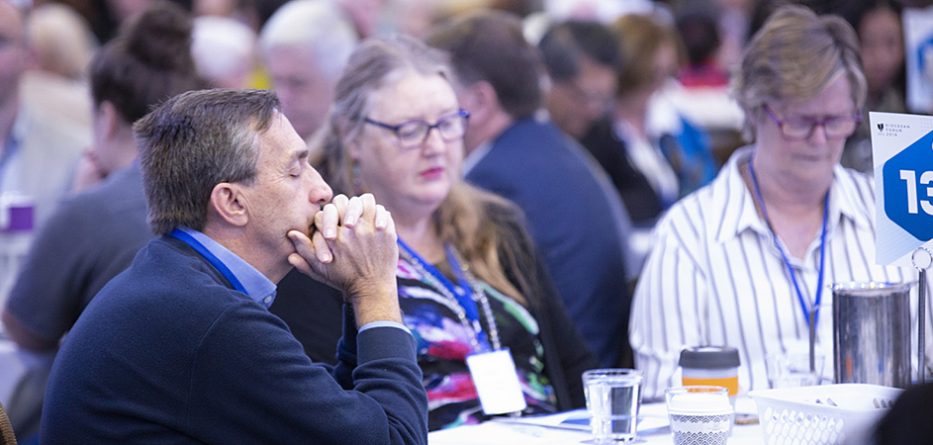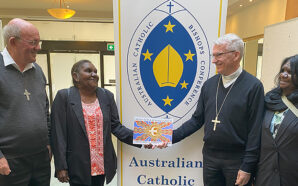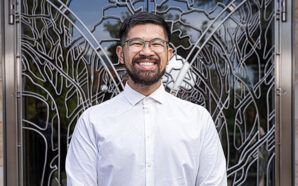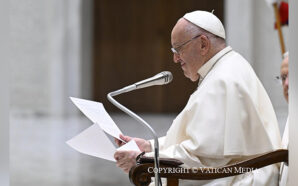Ronan Keating’s love song, ‘When you say nothing at all’, suggests that lovers communicate far more deeply than words allow.
This is also true of our faith, with silence being a key component both in our life of prayer and when we come together to make decisions that matter.
We have to make tough decisions about our family budget, our sports club, office finances, parish goals, or school strategies, and there are limited timeframes for such decisions. Introducing silence into such decision-making processes appears counter-intuitive.
There is much hanging on decisions, and often people speak over the top of each other, or contradict and criticise one another. Even in more respectful encounters, a view is easily dismissed as we calmly explain why such a course of action isn’t feasible at this time.
Silence is surely the enemy of decision making. Silence in a meeting means that people are not sharing ideas. There is not robust dialogue. Aren’t we wasting our time?
There are a couple of factors worth considering here.
The first involves my attitude in entering into a decision-making process. If I arrive with my truth firmly established, then I will seek to impose my will upon the other. I will attempt to convey my truth with whatever eloquence of voice, breadth of evidence, or impassioned anecdotes that the time on the agenda may allow.
If I am well-versed in the art of meetings, I will also know that most decisions are made outside of the room. I will have chatted to colleagues beforehand, and if I have any power in the given organisation, I may consciously or unconsciously assert my role.
Even if I do not have a clear position established, if I enter into a decision-making process with the assumption that others at the table can offer nothing substantial, believing that my position will not significantly alter, then I remain closed, resembling a clenched fist rather than an open, receptive palm.
Silence will do no good in a meeting if our fists are clenched and hearts are closed to the good of the other.
In our Christian tradition, we believe that the Holy Spirit is gifted to each person through their baptism. Each person offers the truth and therefore, we are called upon to honour the truth of one another through listening to them. Our church seeks to discern and can only discern in any meaningful fashion by listening to the church and the world.
To come to silence is similar to applying brakes to the car. When we still the engines of our mind, when we slow down, we can discover a richness sometimes cloaked by busy schedules and my need to be heard.
Silence also suggests there is another presence here, a deeper voice that needs to be affirmed, the voice of the Holy Spirit. And the Spirit speaks not with once voice but many.
Ronan Keating’s lyrics reveal much: “The smile on your face lets me know that you need me.” Intentional silence is an act of love. It means that the other matters. Their voice matters. They matter. Indeed, the decision that is faced becomes a decision for the Body of Christ, rather than a vying of wills. The Spirit can never be at loggerheads with itself.
Our greatest decision is to bring our heart to the heart of the Eucharist.
And in that encounter, Pope Benedict affirms: “Only in silence can the word of God find a home in us, as it did in Mary, woman of the word and, inseparably, woman of silence. Our liturgies must facilitate this attitude of authentic listening.” (Verbum Domini, 66).
If this is true of our liturgy, it is equally true of any occasion, such as Plenary 2020 or other church meetings, where we seek to hear God’s word and faithfully bring it to life.
Let us place silence on our meeting agendas and in our liturgies, allowing the Spirit room to breathe.
Richard McMahon is the Director of Pastoral Planning & Implementation for the Diocese of Parramatta.
The Plenary Council invites people to continue to participate in the journey towards the Council sessions in 2020. There are many opportunities to engage in the “Listening and Discernment” phase by participating in small group sessions within the Diocese. Ask your priests or Deanery Representatives for session dates in parishes and deaneries or contact the Pastoral Planning Office on 8838 3441. You can also visit parracatholic.org/haveyoursay.
For more information on the Plenary Council, visit plenarycouncil.catholic.org.au.








